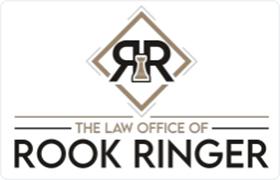Saint Augustine Criminal Lawyer, Florida, page 5
Sponsored Law Firm
-
 x
x

Click For More Info:
-
The Law Offices of Rook Ringer
1 Main St. Saint Augustine, FL 32084» view mapCriminal Defense Get On The Path To Results Today
Let us help you figure out your best next steps are. The sooner you have a plan of action, the better your chances of taking the correct steps to get the results you want.
800-819-8041
Adam Benjamin Edgecombe
Landlord-Tenant, Employee Rights, Felony, Business
Status: In Good Standing Licensed: 15 Years
Adam Lee Sacks
Other, Divorce & Family Law, Felony, Criminal
Status: In Good Standing Licensed: 25 Years
Albert J Datz
Federal Trial Practice, Family Law, Divorce & Family Law, Criminal
Status: In Good Standing Licensed: 76 Years
 Rook Ringer Saint Augustine, FL
Rook Ringer Saint Augustine, FL Practice AreasExpertise
Practice AreasExpertise
